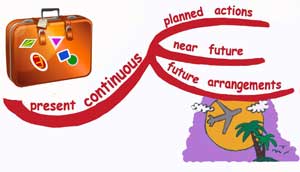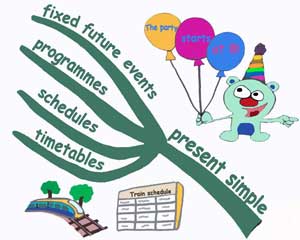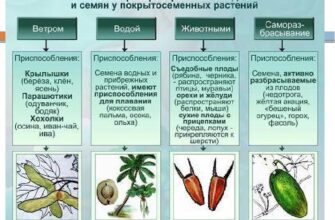- Способы выражения будущего времени в английском. Теория и упражнения
- Способы выражения будущего времени в английском языке.
- Ways of expressing the future action. Схемы и таблицы
- Способы выражения будущего времени в английском. Упражнения.
- The Future Simple Tense. Упражнения с ответами
- Exercise 1. Запишите предложения в Future Simple Tense.
- Exercise 2. Сделайте предложения отрицательными и вопросительными.
- Exercise 3. Дайте краткие ответы на вопросы.
- Exercise 4. Составьте вопрос к выделенным словосочетаниям.
- Exercise 5. Составьте предложения, расставив слова в верном порядке.
- Exercise 6. Дополните предложения правильной формой глагола в скобках и прочитайте шутку.
- Exercise 7. Переведите на английский язык.
Способы выражения будущего времени в английском. Теория и упражнения
В английском языке существует несколько способов выражения будущего времени (ways of expressing future actions). Отработке данных способов посвящен данный урок Затонской А.С.
Автор материала: Затонская Анастасия Станиславовна, педагог дополнительного образования Дворца творчества детей и молодежи г. Ростова-на-Дону, кандидат филологических наук.
Способы выражения будущего времени в английском языке.
Для выражения будущего времени в английском языке необходимо использовать один из следующих способов:
Использование одного из времен Future (will + нужная форма глагола)
| Future Simple | Future Continuous | Future Perfect | Future Perfect Continuous |
| Will+V | Will be +Ving | Will have +V3 | Will have been +Ving |
| а) действия, которые будут длиться в момент будущего | а) действия, которые закончатся до момента в будущем | a) действия, которые будут длиться до момента в будущем | |
| I think the weather will be rainy tomorrow. | Tomorrow at 5pm I will be flying to Riga. | I will have read this article by 5pm. | By 3pm tomorrow I will have been running for 50 minutes in our city marathon. |
Использование the Present Simple Tense.
Present Simple используется для выражения будущего в следующих речевых ситуациях:
В разговорах о расписании (событий / транспорта),
- В разговорах о графиках (мероприятий),
- Относительно программ (мероприятий / передач на радио и тв)
The train leaves at 5pm in the evening.
The meeting begins at 8 sharp tomorrow.
Использование the Present Continuous Tense.

- для выражения запланированного на ближайшее будущее действия (особенно с глаголами движения),
I’m flying to Kongo next Monday. — Я лечу в Конго в следующий понедельник.
Использование фраз to be going to, to be about to.
О данном способе выражения будущего времени подробно написано в статье Конструкция be going to.
Думаю, в рамках данной темы Вам полезно будет также обратить внимание на следующие статьи:
Ways of expressing the future action. Схемы и таблицы
Предлагаю несколько схем и таблиц, которые помогут Вам лучше разобраться в особенностях использования различных способов выражения будущего времени.
Способы выражения будущего времени в английском. Упражнения.
Как и все упражнения из цикла уроков Затонской А.С., следующие упражнения основаны на определенной лексической теме. В данном случае, помимо отработки грамматики, мы отработаем еще и лексику по теме Travelling.
Grammar: the ways of expressing the future action (the Future Simple Tense, the Future Continuous Tense, the Present Simple Tense, the Present Continuous Tense, phrases: to be going to, to be about to).
Lexical topic: Traveling.
Exercise 1. Open the brackets and put the verbs in the proper Tense. Remember that you should use the Future Simple Tense if you speak about the action or succession of actions which will take place in future; if you speak about the action which will be in progress in some moment in future you should use the Future Continuous Tense. You can also use the Present Tenses.
- … you (to go) to the booking office to buy the tickets? – No, I (to phone) them.
- I am sure he (to be busy) when you (to come). – What makes you think so? – He (to pack) his luggage for the trip. – Really? … he (to go) anywhere?
- I am going to visit you in July! I really want to see Jimmy – I haven’t seen him for ages! – Don’t even hope. When you come Jimmy (to travel) in a month-long cruise over Europe.
Exercise 2. Complete the sentences.
- When he arrives at St. Petersburg …
- He will buy the tickets for the express train when …
- When his parents come at his place …
- When you come at his place next Friday your visit will be quite out of place because he…
- They will be going sightseeing when …
- When he waits at the railway station tomorrow …
- He will be hiking when …
- When the summer comes …
Exercise 3. Translate into English.
- Когда придет лето, он будет путешествовать на корабле по Средиземному морю.
- Ты пойдешь меня провожать? – Конечно! С какого вокзала ты уезжаешь? – С главного. Поезд 12, вагон 7. Хорошо! Я не опоздаю!
- Ты знаешь, что к тебе собирается Олег? – Да, это не слишком удачно: когда он придет, я как раз буду собирать чемоданы.
- Куда ты поедешь на каникулы?
Exercise 4. Describe step by step how you hurriedly pack your things and something disturbs you from this. Don’t forget that you can use such phrases as “to be about to”, “to be going to” when you speak about the immediate future.
The pattern: “I am going to pack my things. I am just about to write a list if things when I realize I have no pen. … “
Exercise 5. You and your friends are going travelling at approximately the same time but to different places. Discuss what you are going to take with you, how you are going to spend the time there, give each other pieces of advice.
Exercise 6. Translate into English.
- Ты уже знаешь, где ты проведешь лето? – Да, я поеду на море, как и в прошлом году. – Ты собираешься набрать столько же чемоданов? – Нет, в этот раз постараюсь быть осторожнее с багажом. А куда едешь ты? – Мой маршрут прост: сначала мы с друзьями пойдем в поход, а потом я поеду к родственникам в деревню – буду плавать в речке и загорать на солнышке в деревенской глуши.
- Муж, жена и четверо их детей провели уикенд в деревне. Вечером, возвращаясь, они решили взять такси. «За сколько вы довезете нас до Ленокс-Стрит?» – спросил муж. «Вас и жену за два доллара; детей возьму бесплатно» – ответил водитель. «Отлично, ребята» — сказал отец, — «Вы поезжайте домой, а мы с мамой поедем на метро».
- Пассажир самолета спрашивает стюардессу: «А вы будете раздавать нам парашюты?» – «Конечно, нет» — «Но ведь на кораблях дают спасательные круги!» – «Но ведь мы же не в море!» — «Да, но количество лиц, умеющих плавать, гораздо больше, чем количество лиц, умеющих летать!»
Exercise 7. Describe your plans for the summer.
Exercise 8. What will travelling be like in future, from your point of view? Describe it according to the following plan:
- reasons for travelling;
- season and longevity of travelling;
- means of transport;
- places to stay in;
- sightseeing; entertainment.
Надеюсь, Вам понравился этот урок и вы разобрались в способах выражения будущего времени в английском языке.
Понравилось? Сохраните на будущее и поделитесь с друзьями!
Источник
The Future Simple Tense. Упражнения с ответами
Будущее простое время употребляется для:
- для выражения действий, запланированных на будущее: I will/shall go there tomorrow. Я пойду туда завтра.
- выражение решений, принятых в момент речи: The phone is ringing. — I’ll get it. Телефон звонит. — Я возьму трубку.
- предсказания будущих событий, основанного на наших предположениях. Обычно используются глаголы think (думать), believe (верить), expect (ожидать), а также выражения be sure (быть уверенным), be afraid (бояться) и наречия probably (наверно, вероятно), certainly (конечно, непременно), perhaps (возможно, может быть): They will probably call me later. — Они вероятно позвонят мне позже.
- выражения обещаний, угроз, предупреждений, просьб, надежд и предложений. Will you help me with this task? Ты поможешь мне с этим заданием? I won’t tell anyone your secret. Я никому не расскажу твой секрет.
- выражения действий, описания событий, которые непременно произойдут в будущем и на которые мы не можем повлиять. Jane will be five in January. Джейн исполнится 5 в январе.
Сейчас проверим, насколько хорошо Вы дружите с будущем простым временем).
Exercise 1. Запишите предложения в Future Simple Tense.
- Amanda/move/to a new flat/next month.
- Daniel/attend/language courses/next year.
- His cousin/buy/the tickets for the plane/in two days.
- Our students/study/philosophy/next term.
- I/do the ironing/after dinner.
- We/have/History exam/in three days.
- Larry and Tom/go/to the skating-rink/in an hour.
- You/write/the invitations/for the party/tomorrow.
- Mark/go/to the swimming-pool/next Tuesday.
- They/leave/for Berlin/in a week.
Answers: 1.Amanda will move to a new flat next month. 2. Daniel will attend language courses next year. 3.His cousin will buy the tickets for the plane in two days. 4.Our students will study philosophy next semester. 5. I will do the ironing after dinner. 6. We will have the History exam in three days. 7.Larry and Tom will go to the skating- rink in an hour. 8. You will write the invitations for the party tomorrow. 9. Mark will go to the swimming-pool next Tuesday. 10. They will leave for Berlin in a week.
Exercise 2. Сделайте предложения отрицательными и вопросительными.
- They will sail this yacht next summer.
- He will show you our city.
- Nora will plant flowers tomorrow.
- They will organize the meeting next Friday.
- You’ll spend next month in the language camp.
- Monica and Sam will clean the flat tomorrow.
- She will put on her warm sweater.
- He will buy some fruit.
- People will travel to other planets in future.
- It will rain tomorrow.
Answers: 1.They won’t sail this yacht next summer. Will they sail this yacht next summer? 2. He won’t show you our city. Will he show you our city? 3.Nora won’t plant flowers tomorrow. Will Nora plant flowers tomorrow? 4. They won’t organize the meeting next Friday. Will they organize the meeting next Friday? 5. You won’t spend next month in the language camp. Will you spend next month in the language camp?
6. Monica and Sam won’t clean the flat tomorrow. Will Monica and Sam clean the flat tomorrow? 7. She won’t put on her warm sweater. Will she put on her warm sweater? 8. He won’t buy any fruit. Will he buy any fruit? 9. People won’t travel to other planets in future. Will people travel to other planets in future? 10. It won’t rain tomorrow. Will it rain tomorrow?
Exercise 3. Дайте краткие ответы на вопросы.
- Will they join us for the party? — Yes, … .
- Will you dance at the concert? — No, ….
- Will Pamela come to celebrate New Year with us? — Yes,….
- Will Peter and Frank meet us tomorrow? — Yes, … .
- Will Julia help me with the translation? — Yes, … .
- Will you feed the dog? — No, … .
- Will Henry repair my motor-bike? — No, ….
- Will your parents buy you a new computer? — Yes, … .
- Will Diana prepare the documents? — Yes, ….
- Will this cat catch mice? — Yes…….
Answers: 1. Yes, they will. 2. No, I won’t. 3. Yes, she will. 4. Yes, they will. 5. Yes, she will. 6.No, I won’t. 7. No, he won’t. 8. Yes, they will. 9. Yes, she will. 10. Yes, it will.
Exercise 4. Составьте вопрос к выделенным словосочетаниям.
специальные вопросы в будущем простом времени, слова размещают в таком порядке: вопросительное слово (Wh-word), вспомогательный глагол will, подлежащее, глагол-сказуемое.
Wh-word + will + you/he/she/it/they + V,?
Например:
What will he do tomorrow?
Where will they spend the holidays?
Who will come to you?
- The postman will deliver fresh newspapers in the morning.
- We will have a picnic in the park.
- Her brother will translate this article next week.
- Alex will return home at seven o’clock.
- You will read my report very attentively.
- My friend will soon send me an e-mail letter.
- Her cousin will give you some discs in two days.
- Jane will learn this poem.
- My mother will feed the fish in the evening.
- They will drive to the country next Sunday.
Answers: 1. What will the postman deliver in the morning? When will the postman deliver fresh newspapers? 2. Who will have a picnic in the park? Where will we have a picnic? 3.Whose brother will translate this article next week? What will her brother do next week? 4. Where will Alex return at seven o’clock? When (What time) will Alex return home? 5. Whose report will you read very attentively? How will you read my report? 6.Whom will my friend soon send an e-mail letter? What letter will my friend send me soon? 7.Who will give you some discs in two days? When will her cousin give you some discs? 8. What will Jane do? What will Jane learn? 9. Whose mother will feed the fish in the evening? What will my mother feed in the evening? 10.Who will drive to the country next Sunday? Where will they drive next Sunday?
Exercise 5. Составьте предложения, расставив слова в верном порядке.
- they/trip/return/When/their/will/from?
- tomorrow/the/sign/Our/morning/will/boss/documents.
- not/early/bed/will/to/tonight/I/go.
- publish/in/They/article/the/newspaper/will/your/local.
- problem/they/solve/this/will/How?
- for/will/birthday/What/give/you/her/her?
- after/They/not/me/classes/meet/will.
- receive/the/in/The/documents/morning/will/secretary/the.
- you/Where/from/the/will/flat/put/your/key?
- Next/will/in/train/minutes/arrive/twenty.
Answers: 1.When will they return from their trip? 2.Our boss will sign the documents tomorrow morning. 3. I will not go to bed early tonight. 4.They will publish your article in the local newspaper. 5. How will they solve this problem? 6. What will you give her for her birthday? 7. They will not meet me after classes. 8.The secretary will receive the documents in the morning. 9. Where will you put the key from your flat? 10.Next train will arrive in twenty minutes.
Exercise 6. Дополните предложения правильной формой глагола в скобках и прочитайте шутку.
One day a woman goes along the street and sees a beautiful bracelet in the window of a jewellery shop. She decides that she wants it. So she comes into the shop and asks the shop assistant, «… you … (to show) me this bracelet?» «Here you are, madam», answers the shop-assistant and gives her the bracelet. «Unfortunately, I haven’t enough money with me, but I want to buy it very much. … you … (to hold) the bracelet for me if I pay you a small deposit?» asks the woman. «I … (to hold) this bracelet if you pay £50», answers the shop assistant. «But when … you … (to come) to pay the rest of money and collect it?» «My husband … (to come) and pay for the bracelet as soon as he does something unforgivable. Perhaps he … (to come) this weekend», answers the woman.
Answers: So she comes into the shop and asks the shop assistant, «Will you show me this bracelet?» «Here you are, madam», answers the shop assistant and gives her the bracelet. «Will you hold the bracelet for me if I pay you a small deposit?» asks the woman. «I will hold this bracelet if you pay £50», answers the shop assistant. «But when will you come to pay the rest of money and collect it?» «My husband will come and pay for the bracelet as soon as he does something unforgivable. Perhaps he will come this weekend», answers the woman.
Exercise 7. Переведите на английский язык.
- Я помогу вам организовать выставку.
- Мы будем обедать через пол часа.
- Она не пойдет в школу завтра. Она будет готовится к соревнованиям.
- Мои друзья не будут принимать участия в концерте.
- Вы будете пить чай с нами? — Да.
- Куда они поедут следующим летом? — Они поедут в Италию.
- Мне показать вам дорогу к отелю? — Да, пожалуйста.
- Когда твой муж закончит работу? — Думаю, он придет домой через час.
- Не посетить ли нам твоего двоюродного брата на выходных? — Хорошая идея.
- Что твоя бабушка приготовит на обед?? — Она приготовит суп и рыбный пирог.
- Нам помыть посуду? — Нет, спасибо.
- Вы возьмете такси? — Нет, мы поедем на автобусе.
- Где мальчики будут играть в футбол? — Они будут играть в футбол возле нашего дома.
- Мне заказать пиццу? — Нет, мы сами приготовим пиццу.
- Он позвонит вам вечером? — Да.
Answers: 1.I’ll help you to organize the exhibition. 2.We’ll have dinner in half an hour. 3. She won’t come to school tomorrow. She’ll prepare for the competition. 4. My friends won’t take part in the concert. 5. Will you have tea with us? — Yes, I will. 6. Where will they go next summer? — They will go to Italy. 7. Shall I show you the way to the hotel? — Yes, please. 8. When will your husband finish the work? — I think he will come home in an hour. 9. Shall we visit your cousin at the weekend? — Good idea. 10. What will your Granny cook for dinner? — She will cook soup and a fish pie. 11. Shall we wash the dishes? — No, thank you. 12.Will you take a taxi? — No, we’ll go by bus. 13. Where will the boys play football? — They will play football near our house. 14. Shall I order pizza? — No, we’ll make pizza ourselves. 15. Will he phone you in the evening? — Yes, he will.
WELL DONE!
Литература:
- Павличенко О.М. Английский язык. Грамматический практикум. II уровень. — 2-е изд., испр. и доп. — X.: Ранок, 2012. — 304 с.
Источник


 В разговорах о расписании (событий / транспорта),
В разговорах о расписании (событий / транспорта),






